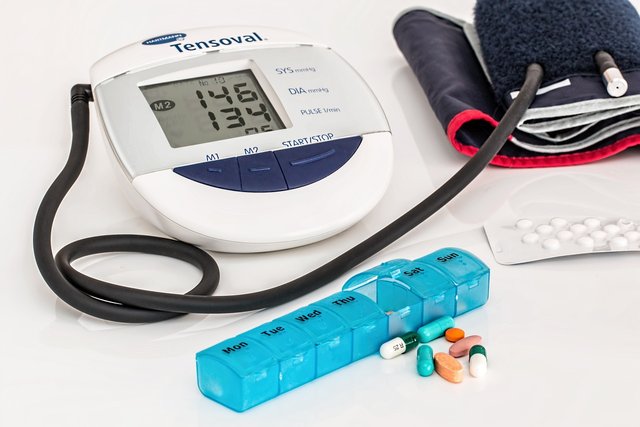Boost Your Well-Being: Unlock the Secrets to a Healthier You
In today's fast-paced and demanding world, an increasing number of individuals are seeking ways to improve their overall well-being and lead healthier lives. Whether it's due to the pressures of work, family responsibilities, or simply the desire for personal growth, many of us are constantly on the lookout for effective strategies to boost our physical, mental, and emotional health. In this article, we will delve into the secrets of a healthier lifestyle and explore various methods that can help you unlock the path to a stronger, more balanced well-being. From adopting healthier habits to discovering the power of mindfulness, we will provide practical tips and insights to guide you on your journey towards a happier and more fulfilling you.

As we navigate through the challenges and complexities of everyday life, our well-being often takes a backseat. Neglected and overlooked, it can start to deteriorate, leaving us feeling drained, stressed, and unfulfilled. However, it doesn't have to be this way. By recognizing the importance of nurturing our physical, mental, and emotional health, we can take the first step towards a more vibrant and content existence. In this article, we will break down the barriers that hinder our well-being and unlock the secrets to a healthier you. Through a holistic approach that combines self-care, healthy habits, and an understanding of our own needs, we will explore various tools and techniques that can empower you to create a life of wellness and fulfillment.
The Importance of a Balanced Diet
Incorporating Exercise into Your Daily Routine
Managing Stress and Practicing Self-Care
Getting Enough Sleep for Optimal Health
Building and Maintaining Strong Relationships
The Importance of a Balanced Diet

In today's fast-paced world, where convenience often takes precedence over nutrition, it is becoming increasingly important to understand the significance of a balanced diet in maintaining overall well-being. A balanced diet provides all the necessary nutrients, vitamins, and minerals that our bodies require to function optimally. It is an essential component of a healthy lifestyle and should not be underestimated.
First and foremost, a balanced diet is essential for sustainably maintaining a healthy body weight. When we consume a variety of foods from different food groups in their appropriate proportions, we ensure that our bodies receive the nutrients they need while avoiding excess calories. This is particularly vital in preventing obesity, as excess weight can lead to a wide range of health problems, including heart disease, diabetes, and certain types of cancer.
Moreover, a balanced diet is instrumental in supporting a strong immune system. Our bodies require a combination of vitamins, minerals, antioxidants, and other essential nutrients to fight off infections and diseases. By consuming foods rich in these elements, such as fruits, vegetables, nuts, and seeds, we provide our immune system with the necessary tools to combat pathogens effectively.
In addition to preventing illnesses, a balanced diet plays a crucial role in promoting mental well-being. Research has consistently shown a strong correlation between the food we consume and our mood and cognitive function. Nutrients such as omega-3 fatty acids, B vitamins, and magnesium, all found in abundance in a balanced diet, have been found to support brain health and reduce the risk of mental disorders such as depression and anxiety.
Furthermore, a balanced diet is key to reducing the risk of chronic diseases. Many non-communicable diseases, such as cardiovascular disease, type 2 diabetes, and certain types of cancer, are strongly influenced by our dietary choices. By incorporating whole grains, lean proteins, healthy fats, and a colorful array of fruits and vegetables into our daily meals, we provide our bodies with the necessary tools to combat these diseases, thus significantly reducing their occurrence.
Not only does a balanced diet fortify our bodies against chronic ailments, but it also plays a vital role in improving our energy levels and promoting overall vitality. By consuming wholesome foods that are rich in complex carbohydrates and high-quality proteins, we provide our bodies with the fuel they need to function optimally throughout the day. This, in turn, enhances productivity, focus, and overall well-being, enabling us to lead fulfilling lives.
Lastly, a balanced diet is essential in ensuring proper growth and development, particularly in children and adolescents. These stages of life necessitate a continuous supply of nutrients to support the rapid physical and cognitive growth that occurs during this time. By providing them with a diet that comprises a variety of nutrient-dense foods, we lay the foundation for a healthy and prosperous future.
In conclusion, the importance of a balanced diet cannot be overstated. It is a crucial pillar of overall well-being and is instrumental in maintaining a healthy body weight, supporting a strong immune system, promoting mental well-being, reducing the risk of chronic diseases, improving energy levels and vitality, and ensuring proper growth and development. By prioritizing a balanced diet and making mindful food choices, we unlock the secrets to a healthier and more fulfilling life.
Incorporating Exercise into Your Daily Routine

In today's fast-paced world, finding time for exercise can often feel like an impossible task. However, incorporating exercise into your daily routine is crucial for maintaining good health and overall well-being. Exercise not only benefits your physical health but also has a profound impact on your mental and emotional well-being. By making exercise a priority in your daily schedule, you can unlock the secrets to a healthier you.
One of the most effective ways to incorporate exercise into your daily routine is by establishing a consistent schedule. Set aside a specific time each day for physical activity and treat it as an appointment with yourself. By making exercise a non-negotiable part of your day, you are more likely to stick with it and make it a habit.
When it comes to incorporating exercise into your daily routine, remember that consistency is key. Start by choosing activities that you enjoy and that align with your fitness goals. Whether it's jogging, swimming, or practicing yoga, finding an exercise that brings you joy will make it easier to remain committed in the long run. Experiment with different activities until you find what resonates with you and fits seamlessly into your lifestyle.
Another important aspect of incorporating exercise into your daily routine is setting realistic goals. Start small and gradually increase the intensity and duration of your workouts. This approach will help you avoid burnout and prevent injuries. It's important to listen to your body and make adjustments as necessary. Push yourself, but also know when to take a step back and give yourself time to recover.
To make exercise a habit, it can be helpful to find an accountability partner or join a fitness group. Having someone to exercise with not only provides motivation but also adds an element of fun and camaraderie to your workouts. Whether it's a friend, family member, or a professional trainer, having someone to hold you accountable can be instrumental in staying on track with your fitness goals.
Incorporating exercise into your daily routine doesn't always require going to the gym or participating in structured workouts. You can find opportunities to be active throughout your day. For example, opting for the stairs instead of the elevator, taking a walk during your lunch break, or doing squats while brushing your teeth can all contribute to increased physical activity. By finding creative ways to incorporate exercise into your daily activities, you can achieve a more active lifestyle without sacrificing time.
Finally, it's crucial to prioritize self-care and make time for rest and recovery. Exercise places stress on your body, and it's important to allow yourself time to repair and recharge. Get enough sleep, eat nourishing foods, and listen to your body's cues. Exercise should enhance your overall well-being, not deplete it.
Incorporating exercise into your daily routine may initially require some discipline and effort, but the benefits far outweigh the temporary inconveniences. By establishing a consistent schedule, setting realistic goals, finding accountability, and exploring creative ways to be active, you can make exercise an integral part of your daily life. Remember, it's not just about physical fitness; it's about nourishing your mind, body, and soul. Start by taking small steps today, and unlock the secrets to a healthier and happier you.
Managing Stress and Practicing Self-Care
In today's fast-paced and demanding world, managing stress and practicing self-care have become paramount for maintaining a healthy and fulfilling life. Stress has become an inherent part of our everyday lives, and if left unchecked, it can have detrimental effects on our well-being. However, by understanding the causes and implementing effective strategies to manage stress, we can significantly improve our overall quality of life.
One of the first steps in managing stress is understanding its root causes. Stress can result from various sources such as work pressure, financial worries, relationship challenges, or even personal expectations. Identifying these underlying factors is crucial to address them effectively. Taking the time to reflect on our daily routines and identifying stress triggers can help us gain insight into what aspects of our lives are contributing to our stress levels.
Once we recognize the causes of stress, it is essential to implement strategies to effectively manage and reduce it. While approaches may differ from person to person, several tried and tested techniques can be universally beneficial. Engaging in regular exercise, for instance, can help release endorphins, which are known as "feel-good" hormones that can alleviate stress and boost overall well-being. Whether it's a brisk walk, a yoga session, or a workout at the gym, physical activity can provide a much-needed outlet for stress.
In addition to exercise, practicing mindfulness and relaxation techniques can significantly reduce stress levels. Mindfulness involves being fully present in the moment and acknowledging our thoughts and emotions without judgment. Techniques such as deep breathing exercises, meditation, and progressive muscle relaxation can help calm the mind and promote a sense of inner peace. Integrating these practices into our daily routines can provide us with a sense of control over our stress levels.
Another integral aspect of managing stress is ensuring that we are taking care of ourselves both mentally and physically. Self-care is often neglected in the hustle and bustle of our busy lives, but it is crucial for maintaining our overall well-being. This includes getting adequate sleep, eating a balanced diet, and avoiding excessive consumption of substances such as alcohol or nicotine.
Moreover, incorporating activities that bring us joy and relaxation is essential in practicing self-care. Engaging in hobbies, spending time with loved ones, or pursuing creative outlets can help alleviate stress and nourish our souls. It is important to prioritize these activities and make time for them regularly, as they can provide a much-needed escape from the pressures of everyday life.
Additionally, building a strong support network is crucial in managing stress and practicing self-care. Surrounding ourselves with positive and supportive individuals can provide us with emotional and practical support when facing challenging situations. Whether it's family, friends, or professional counselors, having someone to talk to and share our concerns with can alleviate stress and provide much-needed perspective.
In conclusion, managing stress and practicing self-care are essential components of a healthy and balanced lifestyle. By understanding the causes of stress and implementing effective strategies to manage it, we can enhance our overall well-being and happiness. Prioritizing self-care, engaging in stress-reducing activities, and building a support network are all vital steps toward achieving a healthier and more fulfilling life. By unlocking the secrets to a healthier you through stress management and self-care, you can ensure a brighter future filled with inner peace and well-being.
Getting Enough Sleep for Optimal Health

In today's fast-paced world, it can be easy to prioritize work, social commitments, and various responsibilities while oversleeping. Many individuals find themselves sacrificing precious hours of rest to meet deadlines or squeeze in some extra activities. However, what they fail to realize is that a good night's sleep is not only essential for maintaining energy levels but also plays a crucial role in promoting optimal health and well-being.
Sleep is a fundamental need that allows the body to rest and rejuvenate. It is during sleep that our bodies repair themselves, both mentally and physically. Adequate sleep is necessary for cognitive functions such as memory consolidation, concentration, and attention. Without enough sleep, our ability to perform tasks efficiently and effectively may be compromised.
Furthermore, sleep deficiency has been linked to a variety of health issues. Chronic lack of sleep can increase the risk of developing conditions such as obesity, heart disease, diabetes, and even mental health disorders like depression and anxiety. It can also weaken the immune system, making one more susceptible to infections and illnesses. Getting enough sleep is crucial for maintaining overall well-being.
How much sleep do we need? While individual sleep requirements may vary, most adults should aim for about seven to nine hours of sleep each night. However, it's important to note that quality of sleep is just as important as quantity. The goal should be to achieve deep, uninterrupted sleep that allows for all the necessary stages of sleep to occur.
To improve sleep quality and duration, it is essential to establish healthy sleep habits, also known as sleep hygiene. Implementing a consistent sleep schedule is key. Try to go to bed and wake up at the same time every day, even on weekends. This helps regulate the body's internal clock, making it easier to fall asleep and wake up naturally.
Creating a sleep-friendly environment is also crucial. Make sure your bedroom is cool, dark, and quiet. Consider investing in a comfortable mattress and pillows that support your body properly. Use blackout curtains, earplugs, or white noise machines to block out any disruptive sounds or lights that may interfere with sleep.
In addition to a conducive sleep environment, it is important to establish a relaxing bedtime routine. Engage in activities that help signal to your body that it is time to wind down, such as reading a book, taking a warm bath, or practicing relaxation techniques like deep breathing or meditation. Avoid stimulating activities, such as using electronic devices or watching intense television shows, as these can interfere with your ability to fall asleep.
Lastly, be mindful of your daily habits and lifestyle choices that may impact sleep. Avoid consuming caffeine and alcohol close to bedtime, as these substances can disrupt sleep patterns. Stay physically active during the day, but do not engage in vigorous exercise too close to bedtime, as it may interfere with falling asleep. Additionally, limit your intake of heavy meals or fluids before bedtime to avoid discomfort or frequent nighttime awakenings.
In conclusion, prioritizing sleep is crucial for optimal health and well-being. By ensuring you get enough quality sleep each night, you are setting yourself up for improved cognitive function, better physical health, and enhanced overall well-being. Establishing healthy sleep habits and creating a sleep-friendly environment are essential steps toward unlocking the secrets to a healthier you. So, embrace the power of sleep and watch as your overall wellness flourishes.
Building and Maintaining Strong Relationships

In today's fast-paced and technology-driven world, it's easy to overlook the significance of building and maintaining strong relationships. However, research has shown that the quality of our relationships has a profound impact on our overall well-being and happiness. Whether it's our relationships with family, friends, or colleagues, nurturing and fostering meaningful connections is fundamental to a healthier and more fulfilling life.
One of the key aspects of building strong relationships is communication. Effective communication is not only about speaking and expressing oneself; it also involves active listening and understanding others. When engaging in conversations, it is essential to be fully present and attentive, sincerely interested in what the other person has to say. This level of engagement fosters a deeper sense of connection and understanding between individuals, cultivating trust and strengthening the bond.
Another critical factor in developing strong relationships is empathy. Empathy is the ability to put oneself in another person's shoes, to understand and share their feelings. Displaying empathy allows us to connect with others on a deeper level, showing them that we value and care about their experiences. By making a conscious effort to listen and understand their perspective, we can cultivate empathy and forge stronger connections.
Trust is the cornerstone of any healthy relationship, and it is vital for both building and maintaining strong connections. Trust is built over time through consistent and reliable behavior. Being trustworthy means following through on commitments, maintaining confidentiality, and being honest and transparent with others. By consistently demonstrating trustworthiness, we create a safe and secure environment for meaningful relationships to flourish.
Building and maintaining strong relationships also requires effort and investment of time. It is important to prioritize and make time for the people who are important to us. This can involve scheduling regular meet-ups, phone calls, or even sending a heartfelt message to let them know they are on our minds. By investing time and energy into our relationships, we demonstrate their value and reinforce the bond with the people we care about.
Conflict is inevitable in any relationship, and how we handle it can make or break the connection. Resolving conflicts constructively and respectfully is key to maintaining strong relationships. It is important to approach conflicts with an open mind, actively seeking a solution rather than trying to prove ourselves right. By communicating openly, actively listening to the other person's perspective, and finding common ground, we can navigate conflicts successfully and strengthen our relationships in the process.
Finally, it is essential to celebrate and appreciate the people in our lives. Expressing gratitude and acknowledging the positive aspects of our relationships can go a long way. By highlighting and appreciating the qualities that make our relationships special, we reinforce the positivity and strengthen the connection with the people we care about.
In conclusion, building and maintaining strong relationships is a fundamental aspect of overall well-being and happiness. Communication, empathy, trust, time investment, conflict resolution, and appreciation all play essential roles in nurturing and fostering meaningful connections. By prioritizing and strengthening our relationships, we unlock the secrets to a healthier and more fulfilling life.
In conclusion, prioritizing our well-being is crucial for leading a fulfilling life. By incorporating the secrets discussed in this article – from maintaining a healthy diet and engaging in regular physical activity

to manage stress effectively and cultivate positive relationships – we can empower ourselves to take control of our overall health. By investing time and effort into self-care and implementing these strategies, we can unlock the secrets to a healthier and more balanced life. Remember, well-being is a journey, and with persistence and dedication, we can continuously improve our physical, mental, and emotional health. Let us commit to making our well-being a top priority and reap the rewards of a happier and more vibrant existence.